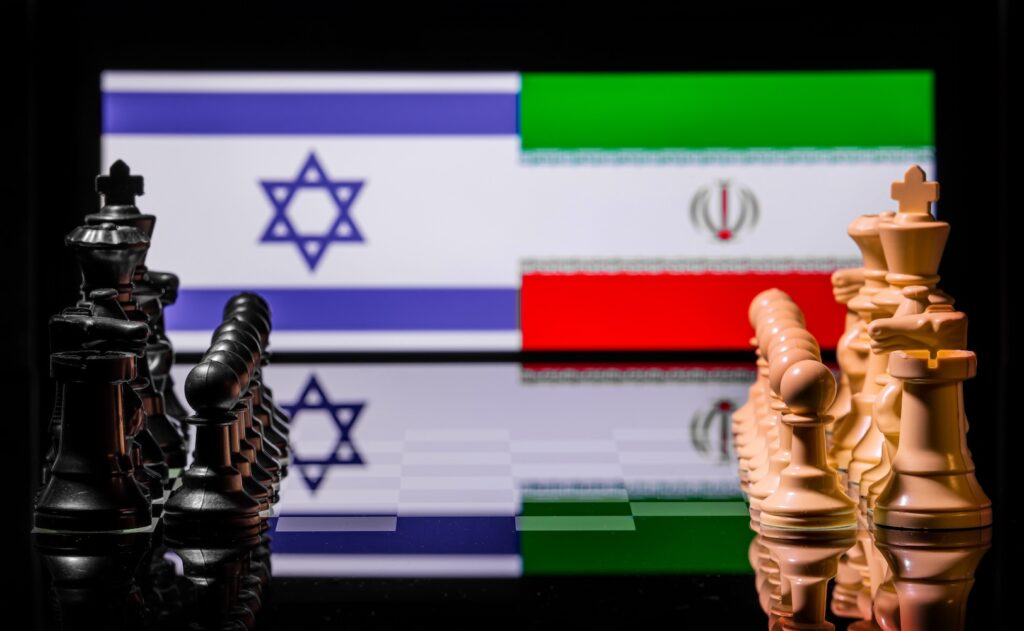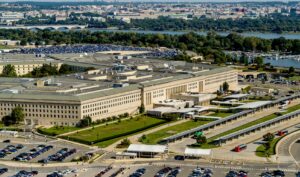Iran fires missile barrage at Israel, including some blanks, in escalation that could prove costly to Tehran
Iran fired over 180 missiles at Israel on Tuesday, including some described as “empty pipes,” in what Israel claims was a strategic miscalculation by the Tehran regime.
The salvos were in…

Iran fired over 180 missiles at Israel on Tuesday, including some described as “empty pipes,” in what Israel claims was a strategic miscalculation by the Tehran regime.
The salvos were in retaliation for Israeli attacks on Iranian-backed Hezbollah leaders in Lebanon, killing top terrorist commanders in recent weeks.
An intelligence source who spoke with regional sources told The Lion that some of the missiles were little more than “empty pipes,” lacking warheads or guidance systems, according to people who inspected one of the missiles that fell short of its target.
Israeli sources who later spoke with The Lion’s source said that reports of similar “empty pipe” missile landings have occurred overnight.
No casualties have been reported in the missile strikes so far.
Iran is increasingly desperate as the Israeli offensive against Iranian proxies Hamas and Hezbollah has weakened the regime since the Oct. 7 terror attack by Hamas against Israel sparked a wider regional conflict.
“I think the Iran regime is teetering on the edge, ready to topple. They just need a push. Unfortunately, Biden won’t push,” said the source, who spoke on the condition of anonymity to protect sources and methods.
Biden-Harris National Security Advisor Jake Sullivan said the U.S. is considering its options in response to the Iranian attack, and pledged the support of the U.S. no matter how Israel responds, according to the Associated Press.
Sullivan said that the U.S. participated in Israel’s air defense against the Iranian barrage.
But The Lion’s intelligence source said, “Israel is going to have to do it alone” in responding to the missile attack.
Biden’s presidential nemesis, former President Donald Trump, said of the Iranian aerial strike on Israel, “the President of the United States should blow that country [Iran] to smithereens, because you can’t do that.”
Trump said the Biden-Harris administration has enriched Iran and has brought the world “very close to global catastrophe” by enabling Iran to create a wider conflict in the Middle East, which Trump has likened to a possible opening of World War III.
In public comments, Israeli Prime Minister Benjamin Netanyahu warned that Iran’s ruling ayatollahs made “a big mistake” and “will pay for it,” reported the Times of Israel.
“The regime in Iran does not understand our determination to defend ourselves and our determination to retaliate against our enemies,” said Netanyahu, according to the Times.
Netanyahu added that Israel will make Iran understand that “whoever attacks us – we will attack him.”
Axios reported that the Israeli cabinet met but the meeting ended without any clear consensus on how Israel should respond.
The response options range from attacks on Tehran’s famed shock troops, the Revolutionary Guards, to a sustained attack on Iran’s nuclear weapons program, to a much wider attack aiming at regime change.
Iran warned that if Israel retaliates for the attack, Iran will respond in-kind, vowing “crushing attacks” on Israel.
“We have a big question mark about how the Iranians are going to respond to an attack, but we take into consideration the possibility that they would go all in, which will be a whole different ball game,” an Israeli official said, according to Axios.
CNN’s chief international anchor Christiane Amanpour said that Iran doesn’t want a wider war, acknowledging that the attacks on Israel have cracked the door open for U.S. participation in a regional war, allied with Israel.
“Nobody, nobody – not the Lebanese nor the Iranians, wants this to escalate even further. Iran does not want an Israeli or a U.S. war against it,” Amanpour told CNN anchor Dana Bash, according to Fox News.
If Iran didn’t intend an escalation of hostilities, they will likely be disappointed, as Israel and others have found the perfect justification for upping the pressure on the Iranian regime because of the missile attack.
While U.S. participation in a direct conflict with Iran is unlikely under Biden, the Iranian aggression has made retaliation from Israel more likely, said retired Lt. Gen. Keith Kellogg, a former national security advisor to President Trump.
“You have to expect that the Israelis will respond in a very forceful manner,” Kellogg told local Fox 13 in Seattle.
The Iranian attacks come as Israel begins to push into Lebanon, the regional headquarters for Hezbollah, vowing to clear out the Iranian-backed terror group from using Lebanon to launch strikes against Israel.
Some have argued that Israeli penetration of Iran’s security apparatus and the general disfavor with which the Islamic fundamentalist regime in Tehran is viewed by the Iranian people make the Iranian government particularly vulnerable right now.
“This is not a time for restraint or de-escalation,” Saeed Ghasseminejad and Richard Goldberg, senior advisors at the Foundation for Defense of Democracies, wrote in The Hill, urging U.S. participation in strikes against Iran. “This is a moment to maximize pressure on Khamenei, increase support for the Iranian people and improve the odds that the Islamic Republic crumbles into the ash heap of history.”



